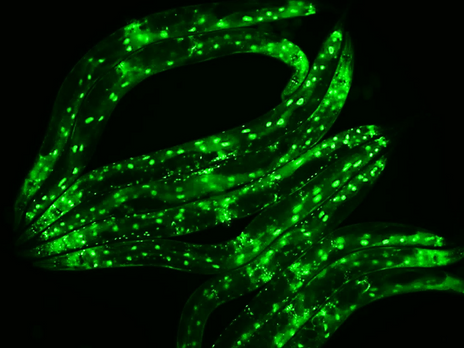Scientific Highlights
Articles
Da Silva, J. D., Oliveira, S., Pereira-Sousa, J., Teixeira-Castro, A., Costa, M. D., & Maciel, P. (2020). Loss of egli-1, the Caenorhabditis elegans Orthologue of a Downstream Target of SMN, Leads to Abnormalities in Sensorimotor Integration. Molecular Neurobiology, 57(3), 1553–1569. https://doi.org/10.1007/s12035-019-01833-0
Esteves, S.*, Oliveira, S.*, Duarte-Silva, S., Cunha-Garcia, D., Teixeira-Castro, A., & Maciel, P. (2019). Preclinical Evidence Supporting Early Initiation of Citalopram Treatment in Machado-Joseph Disease. Molecular Neurobiology, 56(5), 3626–3637. https://doi.org/10.1007/s12035-018-1332-1
Teixeira-Castro, A.*, Jalles, A.*, Esteves, S.*, Kang, S., da Silva Santos, L., Silva-Fernandes, A., Neto, M. F., Brielmann, R. M., Bessa, C., Duarte-Silva, S., Miranda, A., Oliveira, S., Neves-Carvalho, A., Bessa, J., Summavielle, T., Silverman, R. B., Oliveira, P., Morimoto, R. I., & Maciel, P. (2015). Serotonergic signalling suppresses ataxin 3 aggregation and neurotoxicity in animal models of Machado-Joseph disease. Brain: a Journal of Neurology, 138(Pt 11), 3221–3237. https://doi.org/10.1093/brain/awv262
– Duarte-Silva, S., Da Silva, J.D., Monteiro-Fernandes, D., Costa, M.D., Neves-Carvalho, A., Raposo, M., Soares-Cunha, C., Correia, J.S., Nogueira-Goncalves, G., Fernandes, H.S., Oliveira, S., Ferreira-Fernandes, A.R., Rodrigues, F., Pereira-Sousa, J., Vilasboas-Campos, D., Guerreiro, S., Campos, J., Meireles-Costa, L., Rodrigues, C.M.P., Cabantous, S., Sousa, S. F., Lima, M., Teixeira-Castro, A., Maciel., P. “Glucocorticoid receptor-dependent therapeutic efficacy of tauroursodeoxycholic acid in preclinical models of spinocerebellar ataxia type 3.” J Clin Invest., 134(5):e162246 (2024). https://doi.org/10.1172/JCI162246











